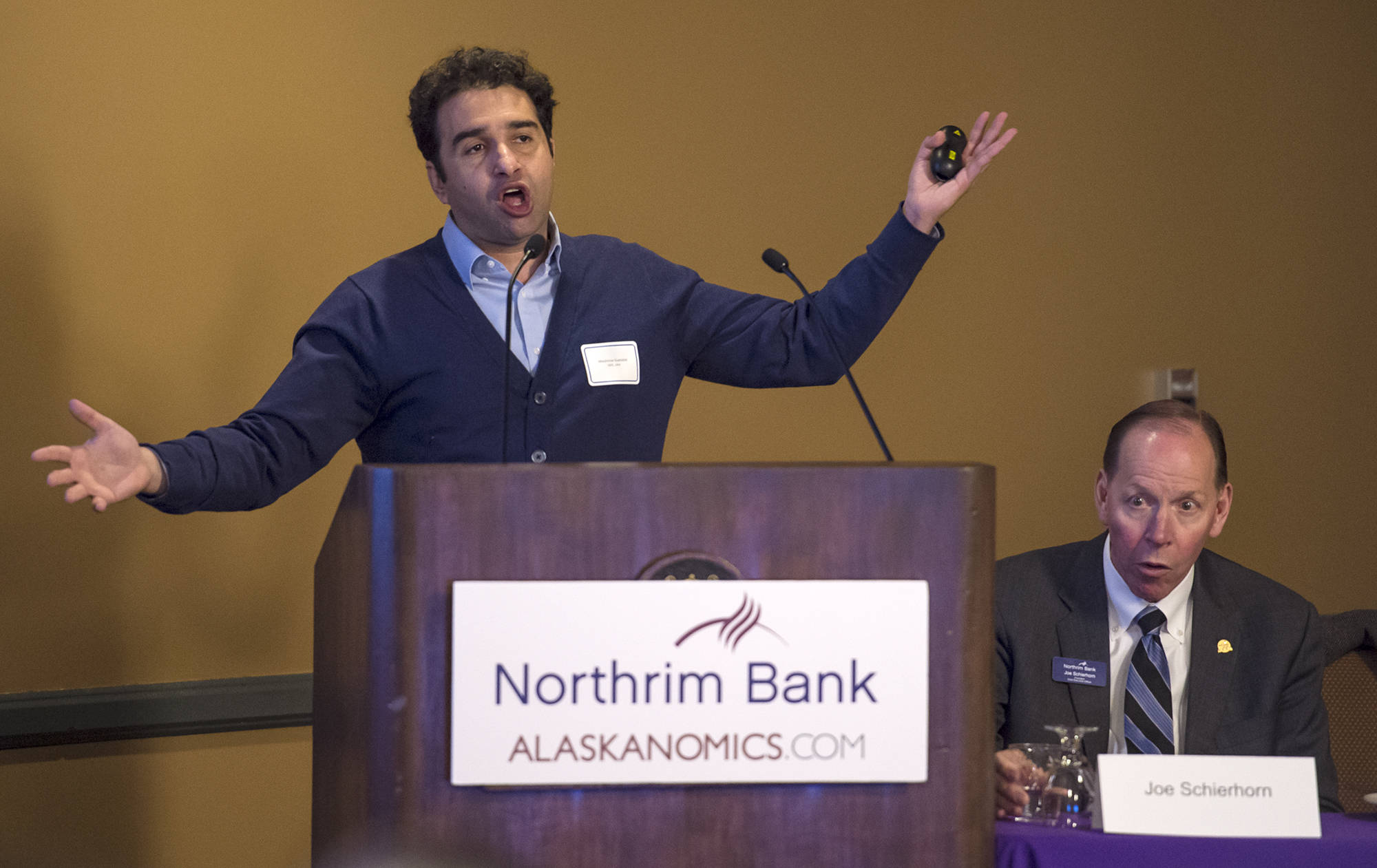The uncertainty with Alaska’s state economy may continue to strike locally.
Economic experts weighed in on the state of Alaska’s economy during Northrim Bank’s annual Economic Lunch Seminar at the Baranof Hotel Wednesday. While local governments’ budgets have been stable for a few years, there is a concern that may change.
“Up to a third of funding to local government comes from the state, ” Mouhcine Guettabi, assistant professor at Institute of Social and Economic Research, said. “Oil, the economic engine of the (state’s) economy is three-quarters of where it used. Local government has held up well, but there is a sense of vulnerability.”
Guettabi explained there is a “downside risk” with local governments despite their stability because of some reliance on the state funding that may not be sustainable in the future. According to the City and Borough of Juneau’s Fiscal Year 2019 budget, the city will receive a projected $65,231,400 funding from the state which is approximately 19 percent of the total revenues.
CBJ City Manager Rorie Watt said that this concern is something the City Assembly is taking very seriously.
“There truly can be a breaking point where (the city) can’t do what the state can do (financially),” Watt said. “Not having a statewide fiscal plan makes it hard on municipalities.”
One of those efforts in having a statewide fiscal plan was explained by Tim Bradner. Bradner, co-editor of Alaska Legislative Digest and Atwood Visiting Professor of Journalism at University of Alaska Anchorage, said one key way to right the economy is having a broad-based income tax and implementing a POMV (percent of market value) — the technical term for the plans to use the Permanent Fund to address the deficit — but he understands it is not an overnight project.
“Policy change can take three or four years,” Bradner said. “But without a broad-based (income) tax and using funds from the Permanent Fund there will be continued uncertainty.”
Joe Schierhorn, Chairman, President and CEO of Northrim Bank said while there are positives in the economy with growths in health care and tourism, there is still a concern that without a long-term statewide fiscal solution — and waiting to implement one —investors will continue to be unwilling to contribute to the state.
“It is critical to have a have a long-term fiscal plan because without one investors hold back from investments,” Schierhorn said. “If there is a plan in place that is predictable it can provide comfort.”
Guettabi said ISER conducted a study to project investment losses between 2016 and 2018. He outlined that the of lack of investments has cost the state a large sum of income.
“Because of the state’s lack of action there has been a loss in investments between $630 million and $1.9 billion,” he said.
Watt said the Assembly has expressed its concerns about the state economy to the Legislature and having a statewide fiscal plan is part of it. Until then, Watt said the local government has to make due with what it has.
“We have to work on our strengths and what we can potentially control,” Watt said.
• Contact reporter Gregory Philson at gphilson@juneauempire.com or call at 523-2265. Follow him on Twitter at @GTPhilson.

